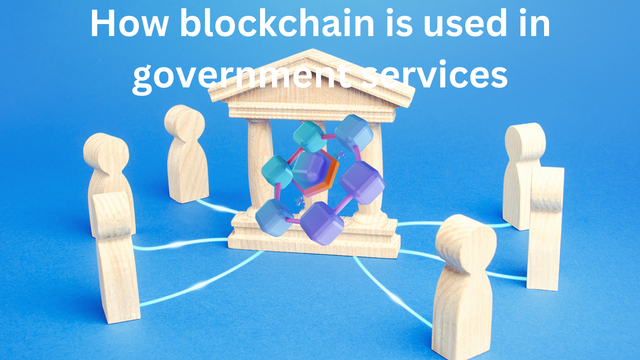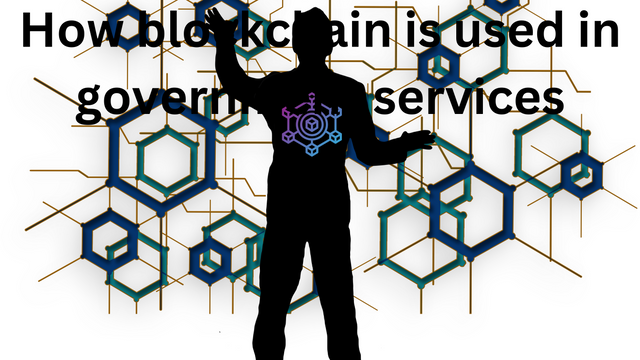.png)
Blockchain technology can provide a pivotal support system to increase the productivity, integrity, and robustness of governmental services. Here are some for implementing the use of blockchain in government services. Among the widely used blockchain sectors, this is one of the most important sectors where blockchain is used properly. Let's start with how blockchain is used in the government service section.
Identify Use Cases: Identify potential contexts whereby blockchain can create value in service delivery by the government. These may be related to aspects such as identity, voting, procurement, registration of land, health, and supplies and materials.
Collaborate with Stakeholders: Communicate actively with the departments within the government, IT professionals, and other stakeholders to develop and integrate blockchain solutions. It is equally important to collaborate in order to make sure that the solution developed provides for the needs and characteristics unique to each governmental service.
Design the Blockchain Solution: Determine what a blockchain is and the inherent consensus mechanism and data structure of the network. Things to evaluate include the number of users that can be handled, level of security in terms of privacy and methods compatibility. Create intelligent property that enables contract and transaction solutions with integrated process automation mechanisms or DAPP.
Ensure Security and Privacy: Ensure that high levels of data security are adopted in order to ensure that data is not distorted or accessed by unauthorized persons. Encrypt the transactions and the user identities so that no one else can access or manipulate the information that users put into the system. It is better to use additional privacy measures like zero-knowledge or zero-knowledge proofs or private blockchain for information, which must remain secret.
Pilot Projects: Pilot studies should be initiated first to determine the feasibility and utility of the blockchain solution at the scale of a single service or component. Here, it is recommended that an organization pay close attention to the effectiveness of the campaign or intervention as well as the satisfaction levels among participants to inform refinements that may be helpful once a more massive outreach is planned.
Integration and Interoperability: It is respectively enforce the freedom, integration, cooperation, and interface among government systems and databases. It will specify standards and protocols that can enable the new systems to fit easily into already existing frameworks. This enable the passing of information to other departments or agencies involved in the same activity in a secure and efficient way.
Education and Training: The following recommendations should be put into practice: Introducing to government officials, employees as well as citizens the training and education on blockchain technology, on the advantages of this concept and on the ways to use the blockchain based government services. This is helpful in achieving the goal of raising awareness and confidence in the new systems among employees and other stakeholders.
.png)
Continuous Evaluation and Improvement: It is necessary to conduct periodic reviews and analyze the effectiveness and results of the blockchain implementation to determine its positive effect on its performance, productivity, and the stimulation of its users’ satisfaction. Seek feedback from clients and identify new trends to make constant enhancements on the solution so that they way government delivers its services can be enhanced.
The use of blockchain in government services provides effectiveness checking, decreased rates of fraud, increased efficiency, and increased citizen confidence. Still, more attention should be paid to the general requirements to most cases at the same time turning attention to existing regulation requirements.

SET @rme as your proxy

X promotion link
https://x.com/mostofajaman55/status/1803669143188562326
Downvoting a post can decrease pending rewards and make it less visible. Common reasons:
Submit